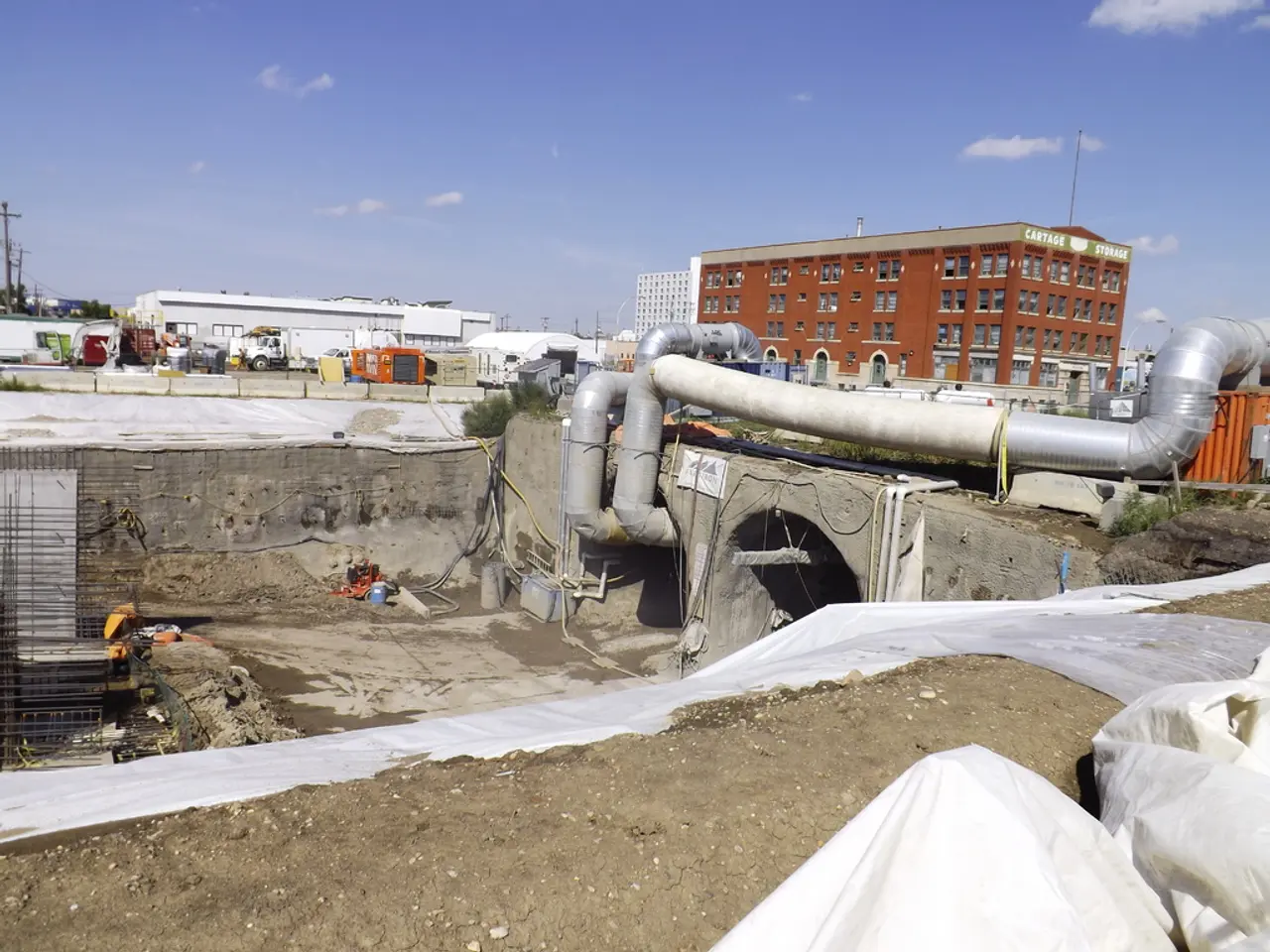Public Dispute Between Greens and CDU Over Climate Change Policies
In a significant development, the German government is grappling with a deepening divide between the ruling Christian Democratic Union (CDU) and the Green Party over climate protection measures. The disagreement centres around the pace and approach to energy transition and climate goals, with key points of contention including gas-fired power plants, renewables expansion, climate policy, and government coordination.
At the heart of the debate, the CDU, particularly economy minister Katherina Reiche, has announced plans to build up to 20 new gas-fired power plants. This proposal is met with opposition from the Greens, as these plants emit greenhouse gases and complicate reaching climate neutrality by 2045, a commitment Germany has made. Green environment minister, Steffi Lemke, has emphasised the need for a concrete, environmentally ambitious plan rather than relying on more fossil gas infrastructure.
Reiche argues that previous governments focused too much on renewable expansion without sufficient grid infrastructure, calling for equal emphasis on supply security and cost reduction alongside climate action. However, the Greens criticise this stance as contradicting the coalition treaty that promises continued renewable energy buildout, viewing Reiche’s comments as undermining the energy transition’s success and delaying necessary renewables growth.
The CDU is shifting climate policies towards market-based instruments, technological innovation, and green industrial policy, focusing more on competitiveness. In contrast, the Greens emphasise stricter climate protection measures and immediate concrete plans to reduce emissions rapidly.
The disagreement has also extended to government coordination and climate goals. While both parties nominally support Germany’s long-term goal of climate neutrality by 2045 and coal phase-out by 2035-2038, there is uncertainty about how these will be achieved in practice. The expert climate council has warned that the government lacks a clear plan for meeting these targets, highlighting the tension between economic and environmental ministries.
The Greens, led by ministers Winfried Hermann and Thekla Walker, have presented a list of already decided projects for municipal climate protection. However, the CDU sees this initiative as an early election campaign maneuver and is upset that the plan was not coordinated with party leader Manuel Hagel.
Despite the disagreements, Winfried Kretschmann, the Green minister-president of Baden-Württemberg, emphasises that the coalition is fully capable of acting in climate protection. The state's forecast for 2024 shows a 53% reduction in CO2 emissions, but the target requires 65%. To address this gap, funds will be allocated for regional energy agencies and the promotion of energy efficiency, and 160 positions will be funded in municipalities and districts to create climate mobility plans.
Hermann warns against putting ambitious climate goals up for debate, stating that the first generation that knows everything needs to act. He holds society, the economy, and the coalition responsible for climate action, and the Greens want to set an example by listening to science, referring to the analysis of the Council of Experts on Climate Change. The momentum for action is further fuelled by a lawsuit by the German Environmental Aid (DUH) at the Administrative Court, which demands more activities.
As the clock ticks towards next Monday, when measures must be entered into a register for evaluation by the Council of Experts on Climate Change, the German government finds itself at a critical juncture in its climate protection strategy. The Greens advocate for accelerated renewable energy deployment and stricter climate protection measures with clear, immediate programs, while the CDU emphasises a more cautious, market and technology-driven approach that includes extending fossil gas use for energy security.
- The disagreement between the ruling Christian Democratic Union (CDU) and the Green Party in Germany centres around climate policy, with the CDU planning to build gas-fired power plants and the Greens emphasizing the need for concrete, environmentally ambitious plans instead.
- In the debate over climate protection measures, the Green Party has presented a list of already decided projects for municipal climate protection, but the CDU views this as an early election campaign maneuver and criticizes the lack of coordination with party leader Manuel Hagel.
- Hermann, a minister of the Green Party, warns against delaying necessary climate action and states that the Greens want to set an example by following science in their climate policies, referring to the analysis of the Council of Experts on Climate Change.








